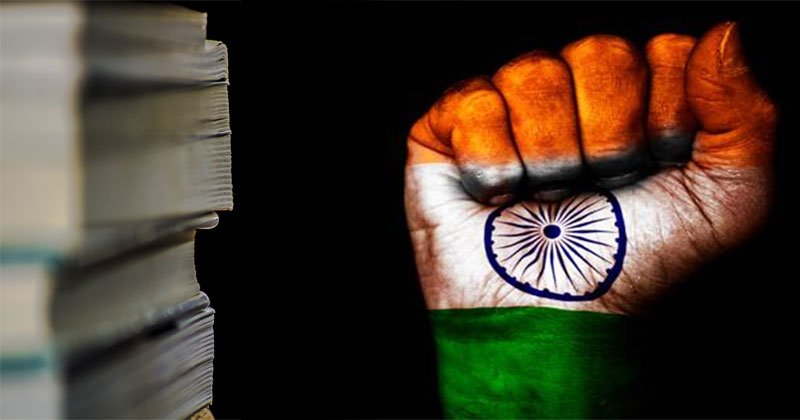
HAPPY INDEPENDENCE DAY TO ALL THE READERS!!!
The struggle and fights for the freedom of one’s nation is literature through which the younger generation can know more about their motherland.
So hand your young ones these Independence books this Independence Day.
Autobiography Of An Unknown Indian by Nirad Chaudhuri (non-fiction): Winston Churchill considered it to be one of the best books he had ever read and Chaudhuri’s magnum opus does not disappoint.
The autobiography tells of a childhood in rural Bengal and youth in a politically active Kolkata till the country’s independence. According to critics, the book, written in a sparkling tone and wit, is the story of modern-day India through the eyes of one man.
Freedom At Midnight by Larry Collins and Dominique Lapierre (non-fiction): Another non-fiction one, Freedom At Midnight tells the story of the last year of the British Raj, focusing on the Indian independence movement during 1946 and 1948, it gives incredible details regarding Indian history. The book gives a detailed account of the last year of the British Raj, the princely states’ reactions to independence, the partition of British India, and the bloodshed that followed. The book also includes interviews with Lord Mountbatten, the last viceroy of British India.
The assassination of Gandhi and the events that led up to it are also explored.
Train To Pakistan by Khushwant Singh (fiction): Focusing on a human story while most books look at a socio-politically active India, the book is set in a fictional village on the border of India and Pakistan. There, a local money-lender is murdered, and suspicion falls upon Juggut Singh, the village gangster who is in love with a Muslim girl.
When a train arrives, carrying the bodies of dead Sikhs, the village is transformed into a battlefield, and neither the magistrate nor the police are able to stem the rising tide of violence. Amidst conflicting loyalties, it is left to Juggut Singh to redeem himself and reclaim peace for his village.
The Last Mughal: The Fall of a Dynasty: Delhi, 1857 by William Dalrymple (non-fiction): Not exactly a book on the final years of Indian Independence, this book, in fact, traces the history of when it all started. In 1857, the first war against the British (known popularly as the Sepoy Mutiny) marked the end of the Mughal rule. William lists the manner in which these events unfolded and the impact it had on the country – both politically and culturally.
Midnight’s Children by Salman Rushdie (fiction): The 1981 novel deals with the transition from British colonialism to independence and the partition of British India. The postcolonial literature that is often considered to have elements of magical realism is told by its chief protagonist, Saleem Sinai, and is set in the context of actual historical events as with historical fiction.
READ ALSO: This is what President Ram Nath Kovind emphasizes in Independence Day message to nation
India’s Struggle for Independence: Written by historian Bipin Chandra, the book is a detailed overview of the Indian independence movement. From the first war of independence that started with Mangal Pandey’ to Mahatma Gandhi’s non-cooperation and the civil disobedience movements, the book includes it all.
India Wins Freedom by Maulana Azad: The book takes the form of an autobiographical account of one of the architects of modern India, Maulana Azad. It the events that took place and ultimately led to the partition of India from the writer’s perspective.
Without Fear: Authored by veteran Indian Journalist Kuldeep Nayar, the book takes a closer look at the firebrand freedom fighter Bhagat Singh. The book explores both his sides-a passionate freedom-fighter and an intellectual inspired by the writings of Marx, Lenin, Bertrand Russell.
An Era of Darkness: The British Empire in India by Shashi Tharoor: The book looks at the many ways in which the colonizers exploited India. The writer also demolishes the arguments of Western and Indian apologists for Empire on the benefits of British rule, including democracy and freedom.
Subhash Chandra Bose by Hugh Toye: Written by British Army intelligence officer who worked in India and Burma during World War, the book, besides detailing the personality of Subhash Chandra Bose also offers important insights into nationalism and Europe-Asia relations.

Post Your Comments